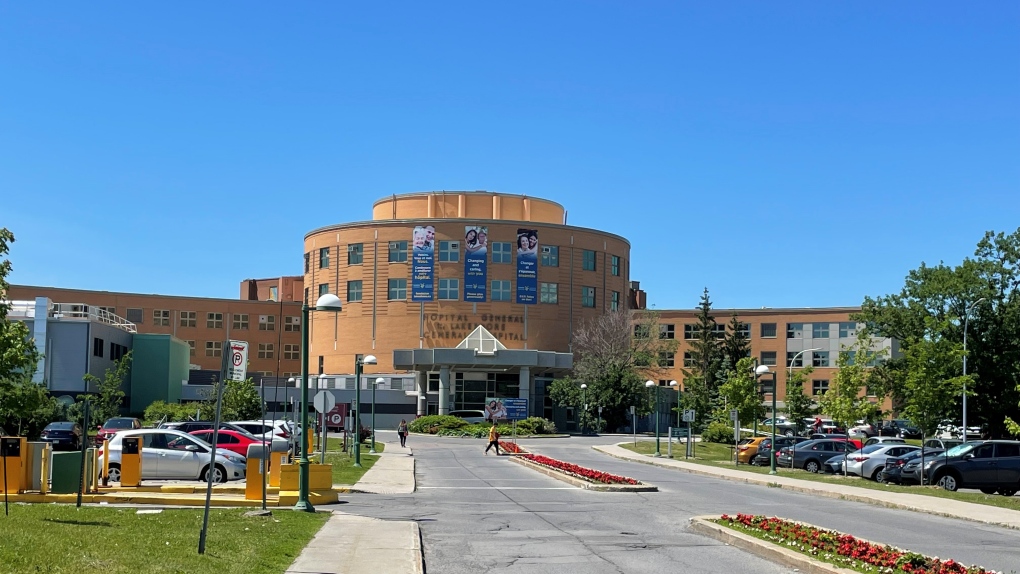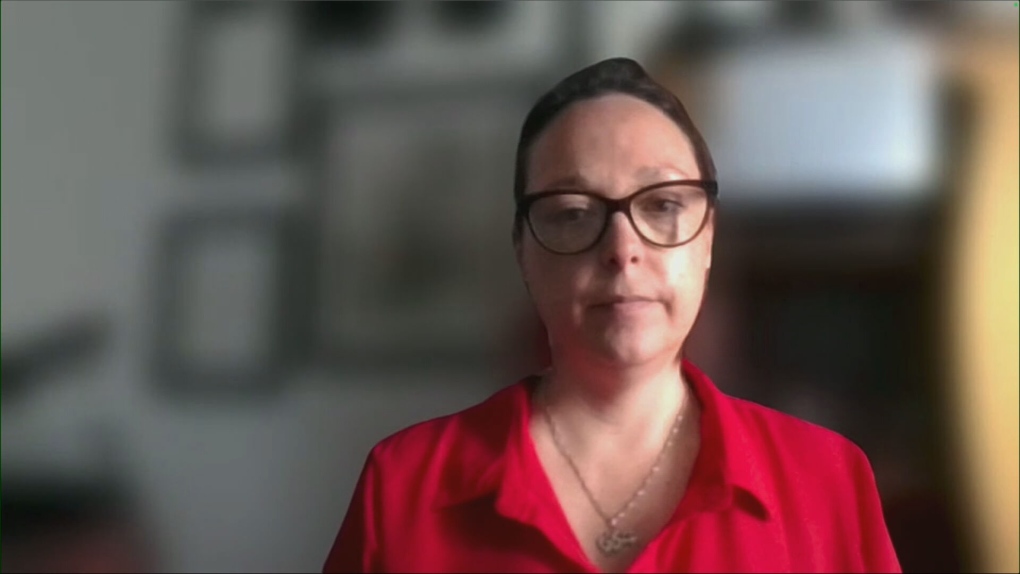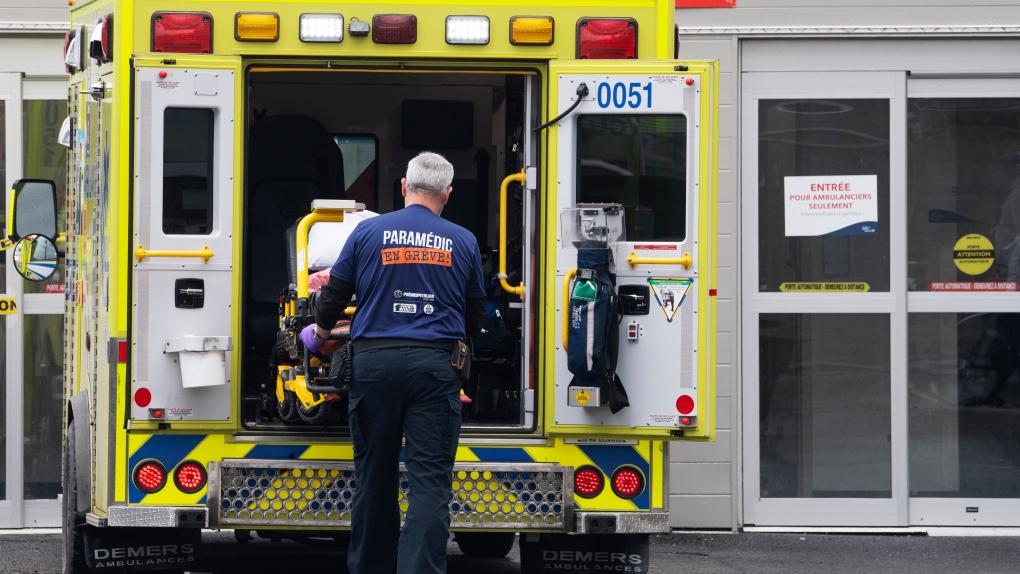Changes to ambulance routes raises concerns for residents on Montreal's South Shore
A new directive from the Quebec health ministry for ambulances serving the South Shore of Montreal is raising alarm bells as some residents are now being redirected to emergency rooms much further away.
The sudden redrawing of ambulance routes in Quebec's Montérégie-Ouest region has caught some people off guard and is the result of the province's commitment to limit the use of private agencies in the health system. The changes announced Tuesday by the CISSS de la Montérégie-Ouest (CISSSMO) affect non-priority calls.
According to the new directive confirmed by CTV News, residents who live in Vaudreuil-Dorion, Saint-Lazare, Les Cèdres, and Pointe-des-Cascades — who previously would be sent to the Suroît Regional Hospital in Valleyfield — will now be redirected to Lakeshore General Hospital on the West Island. The Pointe-Claire hospital has come under pressure in recent years over long-standing overcrowding issues, chronic understaffing and long wait times.
The new ambulance routes were first reported by The Last Ambulance, an independent website run by Hal Newman, a former paramedic.
The head of the MRC de Vaudreuil-Soulanges, which covers 23 municipalities in the region, said he is "concerned about the repercussions for citizens."
"It is important to remember that the Vaudreuil-Soulanges MRC represents more than 166,000 citizens, and is currently served outside the territory, as there is still no operational hospital on the territory," said MRC de Vaudreuil-Soulanges Prefect Patrick Bousez in an email to CTV News.
 Lakeshore Hospital on Montreal's West Island. (Matt Gilmour/CTV News)
Lakeshore Hospital on Montreal's West Island. (Matt Gilmour/CTV News)
Natalie Stake-Doucet, the former president of the Quebec Nurses Association, said nurses have been raising concerns about the effects of limiting private agencies in the health-care network and wonders how much thought was put into the plan announced this week.
"Obviously, it's not ideal. But the most important issue is I'm not sure Lakeshore is ready to absorb those extra patients," Stake-Doucet, a registered nurse and assistant professor in the faculty of nursing at the Université de Montréal, said in an interview.
 Natalie Stake-Doucet is an assistant professor in the faculty of nursing at the Université de Montréal. (CTV News)
Natalie Stake-Doucet is an assistant professor in the faculty of nursing at the Université de Montréal. (CTV News)
Bousez said he's also worried about traffic congestion "caused by the configuration of the A20 and the repair work on the Île-aux-Tourtes Bridge," he wrote in the email.
"What's more, ambulance coverage is already inadequate due to the sheer size of our region. In fact, we've been calling for more ambulance personnel in the Vaudreuil-Soulanges MRC for some time now," he said.
"We will certainly be following this file closely, and we hope that the CISSSMO will take all the necessary measures to ensure that our citizens have more than adequate access to emergency medical care."
The regional health board that oversees the Lakeshore Hospital said currently there is "no impact" on operations at the facility but they will continue to monitor the situation closely.
Under the new directive, residents in Sainte-Clotilde-de-Châteauguay and Saint-Urbain-Premier — whose designated ER was at the Anna-Laberge Hospital in Châteauguay — are now being redirected to Barrie-Memorial in Ormstown, which has only a handful of stretchers in the ER. That hospital will also now receive patients coming from Saint-Louis-de-Gonzague and Saint-Stanislas-de-Kostka.
And for those who live in Sainte-Martine, La Prairie, and Saint-Constant, their designated ER is now Anna-Laberge Hospital.
ER beds closing
On Tuesday, the regional health board for Montérégie-Ouest issued a news release calling on residents to consider avoiding going to the emergency room "whenever possible over the coming weeks" as a result of the "impending cap" on the use of private health agencies. Nearly 100 employees have been hired in recent weeks in a hiring campaign, "but the situation remains precarious," the health board acknowledged in the release.
In 2022, Quebec spent more than $1.5 billion on private health-care agency workers to fill gaps in the public system. Last year, the Quebec government unanimously adopted a bill to abolish the systemic use of private agencies and independent workers in the health network, and set a 2026 deadline to reach its goal.
"As a result, our organization has had to temporarily reorganize its service offering, particularly in hospitals," the CISSSMO release said in reference to the government's objective.
 A paramedic loads his stretcher back into the ambulance after bringing a patient to the emergency room at a hospital in Montreal, Thursday, April 14, 2022. THE CANADIAN PRESS/Ryan Remiorz
A paramedic loads his stretcher back into the ambulance after bringing a patient to the emergency room at a hospital in Montreal, Thursday, April 14, 2022. THE CANADIAN PRESS/Ryan Remiorz
Cutting private agencies is also having another negative impact on the health-care network in the region. A spokesperson for the regional health board confirmed to CTV News that at least 20 beds in Valleyfield's Suroît Regional Hospital have been closed because of the changes and that more beds could be closed in the near future.
"This is not the case at present. Several intensive steps are being taken to limit the impact on patients as much as possible," a CISSSMO spokesperson said in an email.
'We told you so'
For the former head of the Quebec's nurses union, the directive announced on Tuesday was a "very unfortunate case of we told you so" because nurses have been warning that beds will close with the new cap measures.
Stake-Doucet said private agencies are often seen as "vultures" who prey on the weaknesses in the public health-care system, "but they are not the source of the problems."
"If we don't address the retention issue of nursing staff within the health-care system, if it's not private agencies, it'll be something else. And agencies right now, in a lot of areas, especially in places like Montérégie-Ouest, sometimes, entire units for entire shifts were staffed by agency nurses. And while that's obviously not optimal, you can't just cut it off from one day to the next. You need a plan put in place to ensure that there's people to replace them, and if not, what are we going to do to ensure that care is maintained?" she said.
"Our politicians impose measures on health-care institutions, without giving them the means to ensure that care is maintained while there's a transitioning happening."
CTVNews.ca Top Stories

Donald Trump says he urged Wayne Gretzky to run for prime minister in Christmas visit
U.S. president-elect Donald Trump says he told Canadian hockey legend Wayne Gretzky he should run for prime minister during a Christmas visit but adds that the athlete declined interest in politics.
Historical mysteries solved by science in 2024
This year, scientists were able to pull back the curtain on mysteries surrounding figures across history, both known and unknown, to reveal more about their unique stories.
King Charles III focuses Christmas message on healthcare workers in year marked by royal illnesses
King Charles III used his annual Christmas message Wednesday to hail the selflessness of those who have cared for him and the Princess of Wales this year, after both were diagnosed with cancer.
Mother-daughter duo pursuing university dreams at the same time
For one University of Windsor student, what is typically a chance to gain independence from her parents has become a chance to spend more time with her biggest cheerleader — her mom.
Thousands without power on Christmas as winds, rain continue in B.C. coastal areas
Thousands of people in British Columbia are without power on Christmas Day as ongoing rainfall and strong winds collapse power lines, disrupt travel and toss around holiday decorations.
Ho! Ho! HOLY that's cold! Montreal boogie boarder in Santa suit hits St. Lawrence waters
Montreal body surfer Carlos Hebert-Plante boogie boards all year round, and donned a Santa Claus suit to hit the water on Christmas Day in -14 degree Celsius weather.
Canadian activist accuses Hong Kong of meddling, but is proud of reward for arrest
A Vancouver-based activist is accusing Hong Kong authorities of meddling in Canada’s internal affairs after police in the Chinese territory issued a warrant for his arrest.
New York taxi driver hits 6 pedestrians, 3 taken to hospital, police say
A taxicab hit six pedestrians in midtown Manhattan on Wednesday, police said, with three people — including a 9-year-old boy — transported to hospitals for their injuries.
Azerbaijani airliner crashes in Kazakhstan, killing 38 with 29 survivors, officials say
An Azerbaijani airliner with 67 people onboard crashed Wednesday near the Kazakhstani city of Aktau, killing 38 people and leaving 29 survivors, a Kazakh official said.

































